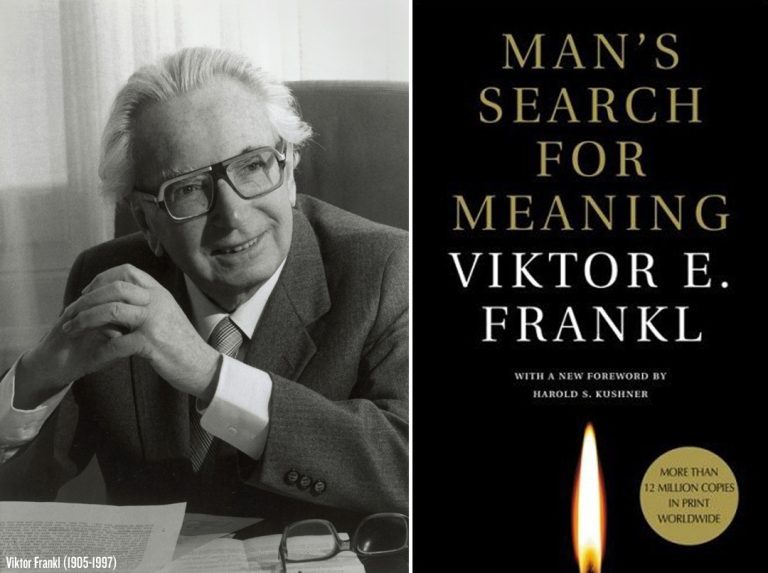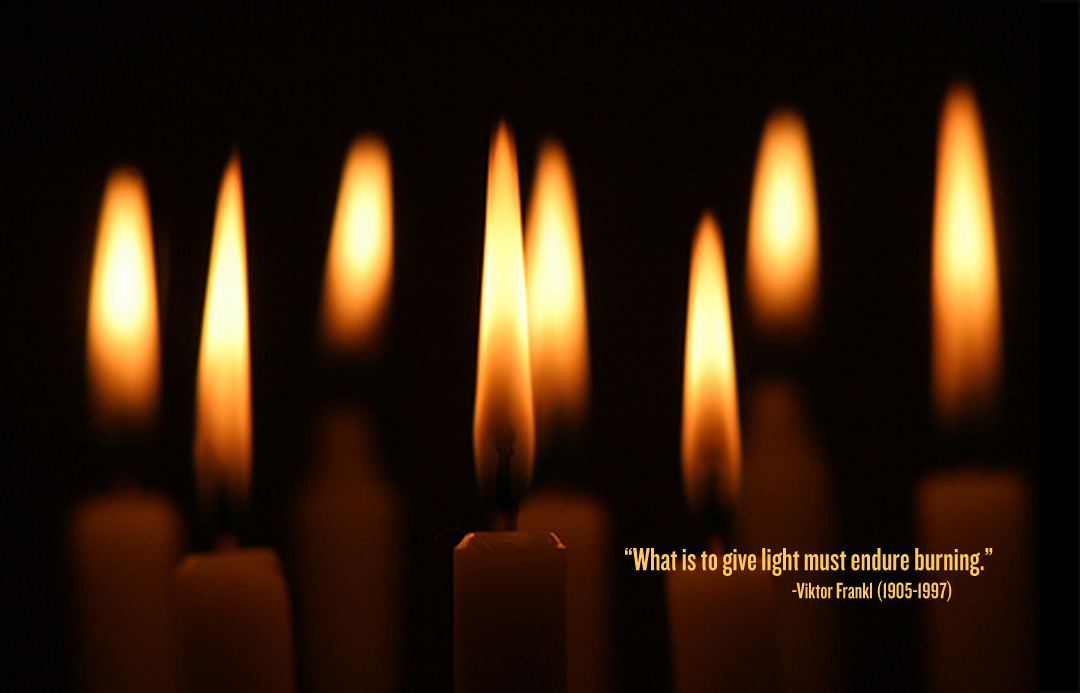In a brilliant new feature written for The Atlantic entitled “There’s More To Life Than Being Happy”, Emily Esfahani Smith, an associate editor at The New Criterion, writes: “In September 1942, Viktor Frankl, a prominent Jewish psychiatrist and neurologist in Vienna, was arrested and transported to a Nazi concentration camp with his wife and parents. Three years later, when his camp was liberated, most of his family, including his pregnant wife, had perished — but he, prisoner number 119104, had lived. In his bestselling 1946 book, ‘Man’s Search for Meaning‘, which he wrote in nine days about his experiences in the camps, Frankl concluded that the difference between those who had lived and those who had died came down to one thing: Meaning — an insight he came to early in life.”
Through his experiences in the concentration camp, Viktor Frankl observed the fundamental difference that separated those who lived and those who perished. The people around him who showed the least amount of will to fight on were the one who believed “that there was nothing more to expect from life, nothing to live for;” while the ones who had the strongest will to survive were those who felt “that life was still expecting something from them; something in the future was expected of them.” As Emily Esfahani Smith points out: “in 1991 the Library of Congress and Book-of-the-Month Club listed ‘Man’s Search for Meaning’ as one of the 10 most influential books in the United States. It has sold millions of copies worldwide. Now, over twenty years later, the book’s ethos — its emphasis on meaning, the value of suffering, and responsibility to something greater than the self — seems to be at odds with our culture, which is more interested in the pursuit of individual happiness than in the search for meaning. ‘To the European,’ Frankl wrote, ‘it is a characteristic of the American culture that, again and again, one is commanded and ordered to ‘be happy.’ But happiness cannot be pursued; it must ensue. One must have a reason to ‘be happy.'”
A growing body of research is proving that oftentimes it’s our pursuit of happiness that ends up thwarting our ability to find it. In a new study, which is set to be published this year in a forthcoming issue of the Journal of Positive Psychology, “researchers found that a meaningful life and happy life overlap in certain ways, but are ultimately very different. Leading a happy life, the psychologists found, is associated with being a ‘taker’ while leading a meaningful life corresponds with being a ‘giver.'” While the pursuit of happiness is a common denominator across the entire natural world, it’s the pursuit of meaning that is uniquely human. In the meaningful life “you use your highest strengths and talents to belong to and serve something you believe is larger than the self.”
Albert Einstein once said that “Happiness as an end goal is for swines.” He continued, “Everybody has certain ideals which determine the direction of his endeavors and his judgments. In this sense I have never looked upon ease and happiness as ends in themselves — such an ethical basis I call more proper for a herd of swine. The ideals which have lighted me on my way and time after time given me new courage to face life cheerfully, have been Truth, Goodness, and Beauty.” As we chart our individual courses for navigating our lives through 2013 and the years ahead, we should try our very best to implement Frankl’s wisdom that happiness cannot be pursued; it must ensue. Of all his greatest insights, perhaps the single most profound of Frankl’s is “one must have a reason to be ‘happy’.” You can read Emily Esfahani Smith’s “There’s More To Life Than Being Happy” in its entirety by visiting TheAtlantic.com. You can also follow Emily Esfahani Smith on Twitter, and to purchase your own copy of Viktor Frankl’s ‘Man’s Search For Meaning’ simply head over to Amazon.
SEE ALSO: Einstein: Happiness As An End Goal Is For Swines
SEE ALSO: FEELguide EDITORIAL | The Dirty 30s: The Search For Mid-Life Meaning In The Modern World





